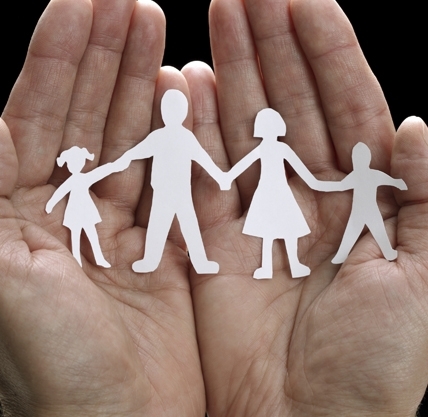BY: JODI HARENDORF
A few months ago, my husband and I were invited to our youngest daughter’s high school for an academic award ceremony. As I sat with about 200 other family members waiting for our kids’ names to be called, I thought about how lucky she, and the other students, were that so many parents and family members could be present for this special occasion.

I also thought, what would happen if I couldn’t have been there to support her? Would her life have been significantly affected if I hadn’t had the luxury of being able to reschedule my work day to be there? Of course not.
But what happens to people who suffer traumas who do not have a support system? Who advocates for them when they cannot advocate for themselves? Who helps them navigate through the complexities of the medical, legal and insurance systems? Who sits by their bedside, and cares for them during the early days of recovery? Who holds them when they cry and cheers them on when they succeed?
The support system plays such a significant role in the recovery and therapy process, and can also significantly affect the outcome. The process of recovery from a serious trauma or injury is difficult enough without having to go through it alone. How does someone who cannot communicate make their wishes known? How does someone who needs care or supervision rely on strangers to provide this care? To have familial support can be the difference between someone finding the strength and motivation to cope and carry on versus giving up.
The family plays such a crucial role in the rehabilitation and recovery process that some would say that it is one of the most critical factors in determining outcome.
I’ve had two very similiar cases recently, men with significant brain trauma which had rendered them in prolonged coma (approximately four months). One client has a mother who was at his bedside 12-15 hours per day. She talked to him, changed his diapers and generally cared for him. The other client has no family in the Toronto area.
Upon wakening, both clients were non-verbal and non-weight-bearing. They both had tracheostomy and were fed through a G-tube.
Today, the client whose mother was with him all day is living with her. He is weight-bearing, verbal and despite some swallowing issues, he is able to eat and is engaged in a full multidisciplinary rehabilitation program. He also volunteers and attends a gym, but will always require access to 24-hour care. The other client is in a semi vegetative state. He is non-verbal, does not voluntarily move, does not consistently respond to cues, continues to have a tracheostomy and is fed through a G-tube.
Did the presence of family make the difference in these two cases? The hospital staff of the client who had his mother at the hospital stated that they believe the client’s outcome was a direct reflection of his mother’s daily presence – caring for him, nurturing him, talking to him and being available throughout his hospital admissions and post discharge.
What will the outcome be for my other client? Who comes to visit him daily? Who talks to him, who cares for him? Where will he live should his cognitive status improve? How motivated will he be to recover or engage in rehabilitation without someone supporting him? I fear that this client may remain in hospital indefinitely.
Jodi Harendorf has been working as a case manager in the field of rehabilitation in the private auto sector for the past 29 years. She is the owner and manager of Catastrophic Injury Management, Inc. and has developed partnerships with many service providers / lawyers / insurers also working in the private auto sector. Jodi is also a Canadian Certified Life Care Planner.
Filed under: Caregiving Tagged: Family support, rehab
![]()
Source: BIST Blog




